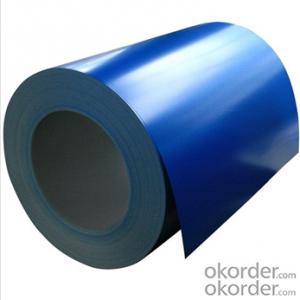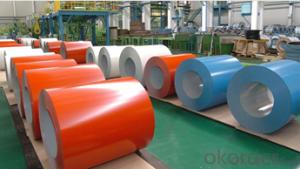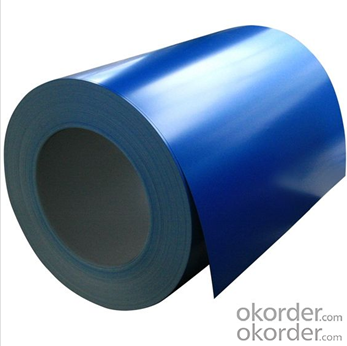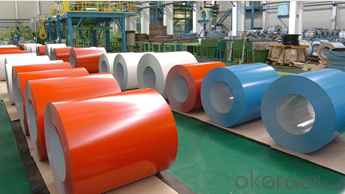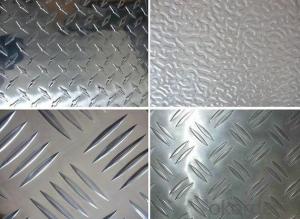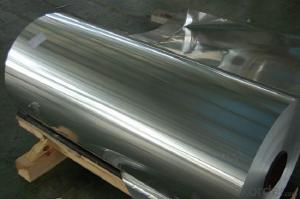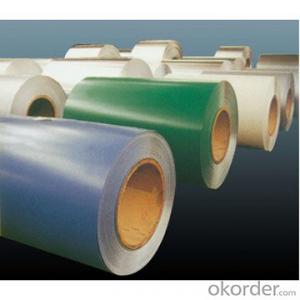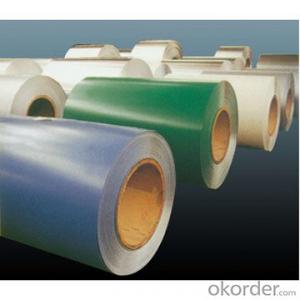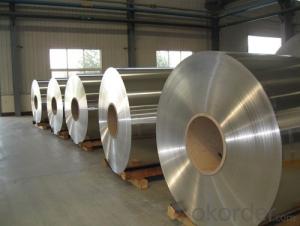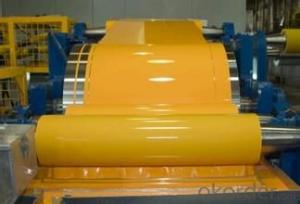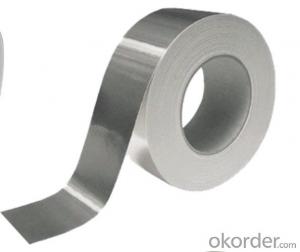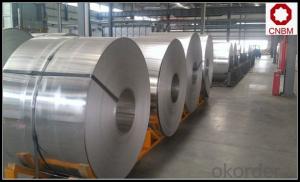1100 H14 Prepainted Color Coated Aluminum Coil
- Loading Port:
- Qingdao
- Payment Terms:
- TT OR LC
- Min Order Qty:
- 5 m.t.
- Supply Capability:
- 5000 m.t./month
OKorder Service Pledge
OKorder Financial Service
You Might Also Like
Specification
Structure of Prepainted Aluminum Coils 1XXX Description
Prepainted Aluminum Coils 1XXX are of a wide range of colors, which give wonderful appearance no matter in residential and commercial constructions or great exhibition centers.
Prepainted Aluminum Coils 1XXX have been widely used in the fields of construction and decoration, electronic applications, lighting decoration, air-condition air pipes, sandwich panels and drainages etc.
Description
Main Features of Prepainted Aluminum Coils 1XXX
• Superior quality of raw material
• Reasonable and stable chemical composition
• Accurate tolerance
• Goode mechanical property
Pictures
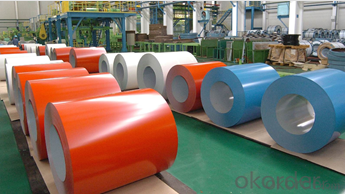
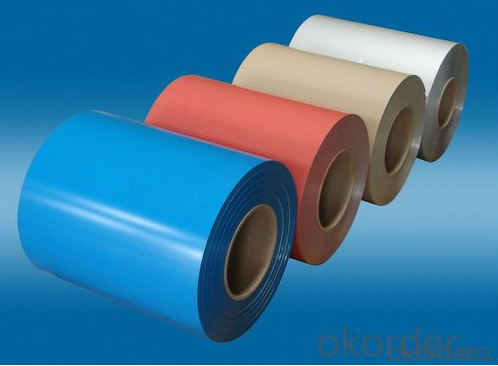
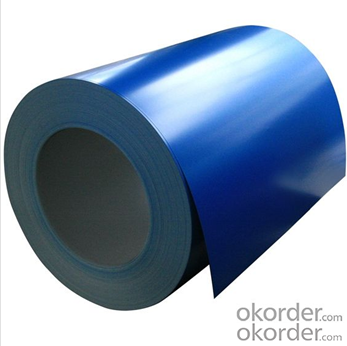
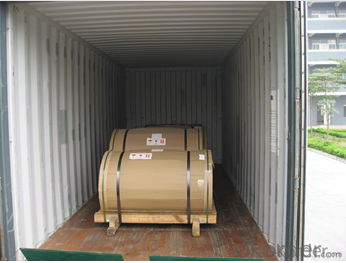
Product Description
Aluminium is remarkable for the metal's low density and for its ability to resist corrosion due to the phenomenon of passivation. Structural components made from aluminium and its alloys are vital to the aerospace industry and are important in other areas of transportation and structural materials. The most useful compounds of aluminium, at least on a weight basis, are the oxides and sulfates.
Despite its prevalence in the environment, no known form of life uses aluminium salts metabolically. In keeping with its pervasiveness, aluminium is well tolerated by plants and animals. Owing to their prevalence, potential beneficial (or otherwise) biological roles of aluminium compounds are of continuing interest.
The earliest citation given in the Oxford English Dictionary for any word used as a name for this element is alumium, which British chemist and inventor Humphry Davy employed in 1808 for the metal he was trying to isolate electrolytically from the mineral alumina. The citation is from the journal Philosophical Transactions of the Royal Society of London: "Had I been so fortunate as to have obtained more certain evidences on this subject, and to have procured the metallic substances I was in search of, I should have proposed for them the names of silicium, alumium, zirconium, and glucium."
FAQ
1. What is the applications?
Outdoor decoration, business chain, exhibition of advertisement decoration and display ,ACP, wall cladding, facades, roofs and canopies, ceilings, signboards, blind window, display platforms, electrical panels etc.
2. What is the popular size?
1000*2000,1200*2400,1219*2438,1220*2440
1000*3000,1250*3000,1500*3000 etc.
3. What is the coating?
Polyester, Fluorocarbon, polyurethane and epoxy coating
4. What is the Surface Quality?
be free from Oil Stain, Dent, Inclusion, Scratches, Stain, Oxide Dicoloration, Breaks,
Corrosion, Roll Marks, Dirt Streaks and other defect which will interfere with use
5. How about the shipment?
Shipment: By bulk vessel or By container
Welcome to inquiry us! Hope we can establish a long-term relations of cooperation.
- Q: How do aluminum coils contribute to sustainability efforts?
- Aluminum coils contribute to sustainability efforts by being highly recyclable, energy-efficient, and durable. They can be recycled repeatedly without losing their properties, reducing the need for virgin aluminum production and minimizing waste. Additionally, aluminum coils have a low weight-to-strength ratio, resulting in energy savings during transportation. Their durability ensures a longer lifespan, reducing the frequency of replacements and the associated environmental impact. Overall, aluminum coils play a crucial role in promoting a more sustainable and circular economy.
- Q: Are aluminum coils suitable for automotive heat shields?
- Yes, aluminum coils are suitable for automotive heat shields. Aluminum is a lightweight and highly heat-resistant material, making it an ideal choice for heat shields in vehicles. Its excellent thermal conductivity allows it to effectively dissipate and reflect heat, protecting sensitive components and reducing the risk of overheating. Additionally, aluminum coils are durable and can withstand the harsh conditions often encountered in automotive applications.
- Q: What are the typical standards and specifications for packaging aluminum coils?
- <p>The standard specification for aluminum coil packaging varies depending on the industry and region, but generally includes the following: The coil is typically wrapped in a protective film to prevent damage and corrosion. It is often strapped with steel or plastic bands to secure the coil during transportation. The packaging may also include wooden pallets or crates for stability. The dimensions and weight of the packaging are tailored to the coil's size and thickness. Compliance with international standards such as ASTM, ISO, or specific industry standards is crucial. It's important to note that exact specifications can differ based on customer requirements and the end-use application of the aluminum coil.</p>
- Q: Are aluminum coils suitable for electrical conductors?
- Yes, aluminum coils are suitable for electrical conductors. Aluminum is a widely used material in the electrical industry due to its excellent electrical conductivity. It has around 61% conductivity of copper, which is the most commonly used metal for electrical conductors. Aluminum coils are lightweight, cost-effective, and have good thermal conductivity, making them a popular choice for various electrical applications. However, it is important to note that aluminum has a lower tensile strength compared to copper, so it may require a larger cross-sectional area to achieve the same level of current carrying capacity. Additionally, proper insulation and connectors are necessary to prevent oxidation and ensure efficient electrical conductivity in aluminum coils.
- Q: Is it possible to utilize aluminum coils in the construction of solar panels or wind turbines?
- <p>Aluminum coils can be used in the construction of both solar panels and wind turbines, but not as the primary material for energy conversion. In solar panels, aluminum is often used for framing and mounting structures due to its lightweight and corrosion-resistant properties. For wind turbines, aluminum is utilized in the manufacturing of certain components such as nacelle shells and towers, but the main rotor blades are typically made from composite materials for their strength and aerodynamic properties. Thus, while aluminum plays a supportive role in these renewable energy technologies, it is not the core material for capturing solar or wind energy.</p>
- Q: Can the 5-10cm thick paper sleeve inside the scrapped aluminum coil be sliced? Now we use knife which is much troublesome.
- You can use Long Men Rolling Mill to slice directly.
- Q: I bought a house that is older with aluminum windows, and the last owner did not seem to clean them for quite some time. The aluminum frames are a silvery milky white color and my neighbors that have the same windows look like chrome. I have brushed these windows with scrub brushes and green scouring pads even aluminum wheel cleaner, now my frame is a clean milky grey color, it just isnt polished like my neighbor has it, his is like chrome. I have tried silver polishes and this doesn't remove the grey film either - i need something stronger. Can anyone help???
- Your aluminium windows are possibly anodised which is a process carried out before the windows are assembled.Anodising is like a hard finished skin ,silver in your windows which was probably a semi sheen to begin with, some times this finish oxidises causing this white milky appearance. Anodising can be black,gold red, brown, and possibly other colours too used on motor cycles and sports equipment etc. Your neighbours window were probably anodised and polished (almost like chrome) again this would have been carried out before the windows were assembled. If this is the case no amount of cleaning will polish your anodising to a bright shiny finish. Contact an aluminium window installer/manufacturer as they have cleaning blocks, These look rather like a large pencil eraser containing metallic abrasive particles this may help. Your grey film is lightly to be the original siver turned dull. consult your aluminium window supplier to see if they can offer a better solution It may be possible to spray paint your window frames these would require acid etching and is a specialist procedure hope this is helpful good luck
- Q: Are aluminum coils compatible with different joining methods?
- Yes, aluminum coils are compatible with different joining methods. Some common joining methods for aluminum coils include welding, soldering, brazing, and mechanical fastening. The choice of joining method depends on the specific application and requirements.
- Q: Are aluminum coils resistant to vibration?
- Yes, aluminum coils are generally resistant to vibration. Due to their inherent strength and elasticity, aluminum coils can withstand vibrations and oscillations without significant deformation or damage. This property makes them suitable for various applications that involve mechanical movement or exposure to vibrations.
- Q: How are aluminum coils manufactured to specific dimensions?
- Precision engineering and cutting-edge technology are utilized to manufacture aluminum coils with specific dimensions. The process commences with the selection of high-quality aluminum ingots, which are subsequently melted and cast into long, flat strips. Upon achieving the form of flat strips, the aluminum undergoes a sequence of rolling operations. The strips pass through a rolling mill, gradually decreasing in thickness and elongating in length. This rolling process is instrumental in attaining the desired dimensions and thickness for the coils. Following the initial rolling, the strips undergo annealing, a process involving heating the aluminum to a specific temperature and then cooling it slowly. This procedure enhances the ductility and reduces internal stresses in the metal, making it more manageable for subsequent manufacturing steps. The subsequent step is slitting, which involves cutting the wide strip into narrower strips of the desired width. High-precision slitting machines ensure accurate and consistent dimensions for each coil. Additionally, edge trimming is performed during the slitting process to eliminate irregularities and ensure straight edges. Once the narrower strips are obtained, specialized machines are utilized to coil them. These machines carefully wind the strips into coils of the desired size and shape, ensuring secure and tight winding. To further enhance dimensional accuracy, the coils may undergo a final leveling process. This process entails passing the coils through a machine that applies pressure to flatten any irregularities or distortions in the metal, ensuring a uniform and consistent thickness. In summary, the manufacturing of aluminum coils with specific dimensions necessitates a combination of precision rolling, slitting, coiling, and leveling processes. These processes, in conjunction with advanced machinery and quality control measures, guarantee that the final product meets the precise specifications required by the customer.
Send your message to us
1100 H14 Prepainted Color Coated Aluminum Coil
- Loading Port:
- Qingdao
- Payment Terms:
- TT OR LC
- Min Order Qty:
- 5 m.t.
- Supply Capability:
- 5000 m.t./month
OKorder Service Pledge
OKorder Financial Service
Similar products
Hot products
Hot Searches
Related keywords
